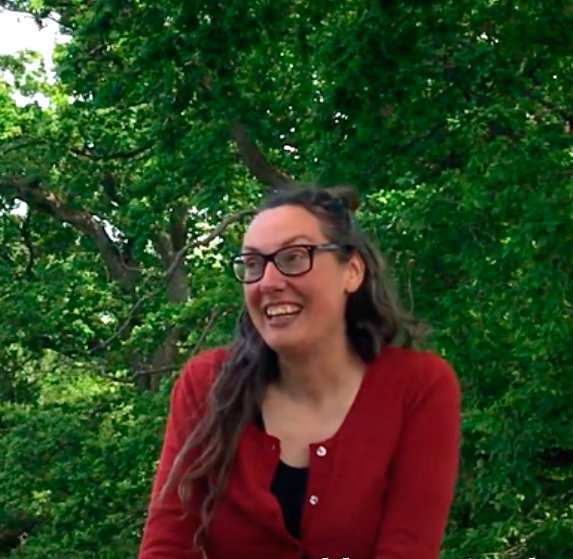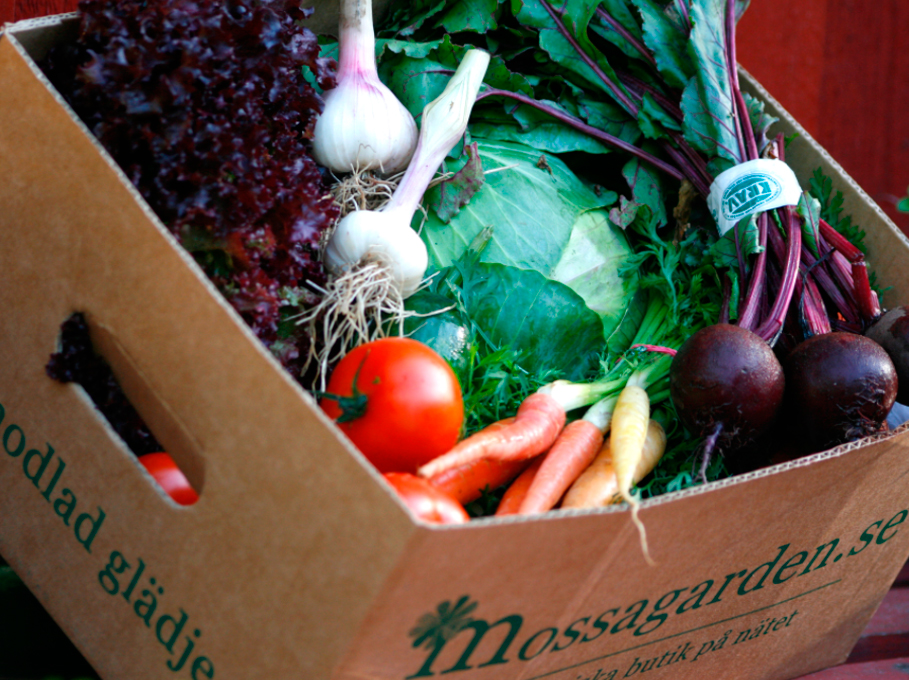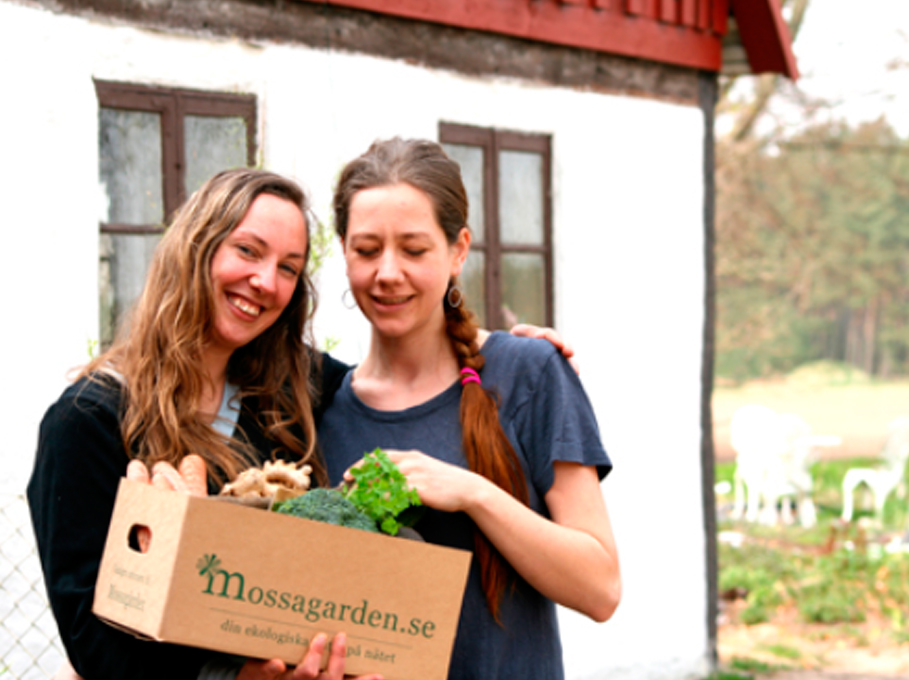This case study is about Mossagarden, an organic family farm located in Sweden producing vegetables and hemp.
Ebba-Maria Mossagarden, owner and full-time farmer, found a way to finance her new plans for her farm in an innovative way: she is setting up a foundation which through the system of a matching bank will receive funds from other foundations to be used withing 3 years. She plans to finance the expansion hemp production and increase multi-functional activities in her farm. Ebba-Maria is an innovative farmer, strongly devoted to educational activities and visionary, who sees farming more than just a profession. Farming is for her a way to change society.
![]() Name: Ebba-Maria Mossagarden.
Name: Ebba-Maria Mossagarden.
![]() Birth year: 1977.
Birth year: 1977.
![]() Gender: Female.
Gender: Female.
![]() Education: Secondary, Ebba-Maria didn’t receive any complementary education.
Education: Secondary, Ebba-Maria didn’t receive any complementary education.
![]() Occupation: Ebba-Maria is a full-time farmer and owner of Mossagarden organic farm in Sweden.
Occupation: Ebba-Maria is a full-time farmer and owner of Mossagarden organic farm in Sweden.
![]() Farm location: Veberöd, in the south of Sweden.
Farm location: Veberöd, in the south of Sweden.
![]() Farm Area in ha: 60 hectares.
Farm Area in ha: 60 hectares.
![]() Farm description: Mossagarden is an organic vegetable farm, producing mainly hemp. The farm also produces carrots, potatoes, kale, cucumber, fruits, herbs.
Farm description: Mossagarden is an organic vegetable farm, producing mainly hemp. The farm also produces carrots, potatoes, kale, cucumber, fruits, herbs.
It is a family farm, and its ancestry dates back to 1811. It belonged back then to one of the many farms that were relocated from the community Veberöd in the framework of the great land reform. Mossagården became an organic in 1985. MariAnne and Bengt Olson, Ebba-Maria’s parents were the farm owners.
Ebba-Maria took over the company when she was 21. She is the second-generation farmer. The farm is organic since the 80s.
Mossagarden is a multifunctional farm which develops several extra commercial activities. The farm has its own café and eco-shop. Besides quality production, it offers on-farm sales, didactic activities, green services and even an organic nature-inspired music festival.
Ebba-Maria is working with her partner, together with 4 full-time employees.
Ebba-Maria has plans of expanding Mossagarden farm in terms of production and educational activities. This would require €200,000 investment that she cannot currently afford with her income of selling organic vegetables. However, after hearing about the system of a matching bank from her farm consultant, she decided to set up a foundation, that is about to be launched in one week.
This works in the following way: there is a matching bank that links foundations willing to give money with foundations that seek for money to invest in sustainable projects. The matching is done worldwide through artificial intelligence.
After creating the foundation, she will receive funds from other foundations, that must be used within 3 years. The benefit of creating a foundation is that it is easier to receive funds, compared to having the company status. Moreover, foundations do not have to pay taxes.
The challenge of this model is that writing application for setting a foundation is time-consuming.
According to Ebba-Maria, the main impacts of this innovative financing model are: risk reduction, increase in income, satisfaction of personal concerns.
Ebba-Maria is member of many networks, including environmental and farming organisations. Moreover, she cooperates with many innovation networks and universities.
Ebba-Maria has many plans for the future of her farm once the foundation will be set up. She wants to expand the production of hemp, increase the educational activities around the farm (set up educational programmes for both conventional and organic farmers, workshops for citizens about auto-production, gardening, nutrition, excursions, more festivals), invite guest chefs in the farm restaurant and expand the agri-tourism activities.
“Work with direct selling to consumers, check the market and see what people want. Don’t be afraid to create new products – people love that! Be a committed and engaged farmer. Look for support from existing systems in your country, such as farming organisations. Don’t work with investors in the first place! Most of them want to see economic results before the environmental or educational ones – which in my view have an even bigger value. Moreover, you are freer and more autonomous in your decisions. I have seen many examples in which investors, after offering financial support to people to create products, then stole the idea and push away the inventors.”
![]() Training experiences and gaps: Ebba-Maria did not receive any specific training about farm management. In her opinion, you don’t need specific skills to carry on an activity like hers, but commitment and being open to learning by doing, without being afraid of making mistakes.
Training experiences and gaps: Ebba-Maria did not receive any specific training about farm management. In her opinion, you don’t need specific skills to carry on an activity like hers, but commitment and being open to learning by doing, without being afraid of making mistakes.
What she would like to improve professionally is the capacity to employ people in the right way and create a stronger team.
![]() Final considerations: Ebba-Maria is an example of innovative modern farmer: she is environmentally conscious, with a self-learner attitude, strongly passionate about her job and open to new ideas. She is very visionary and is planning to implement many new projects. She wants to create a foundation to fund her new projects in an innovative way and she does not seem concerned about eventual risks.
Final considerations: Ebba-Maria is an example of innovative modern farmer: she is environmentally conscious, with a self-learner attitude, strongly passionate about her job and open to new ideas. She is very visionary and is planning to implement many new projects. She wants to create a foundation to fund her new projects in an innovative way and she does not seem concerned about eventual risks.
Her farm is strongly multi-functional, following the model of agri-tourism: it has a café, a direct selling shop, where she organises educational workshops, excursions and even music festivals.
She believes in the transformative power of farm education for citizens and, once she will have the foundation set up, she wants to invest in this direction..






